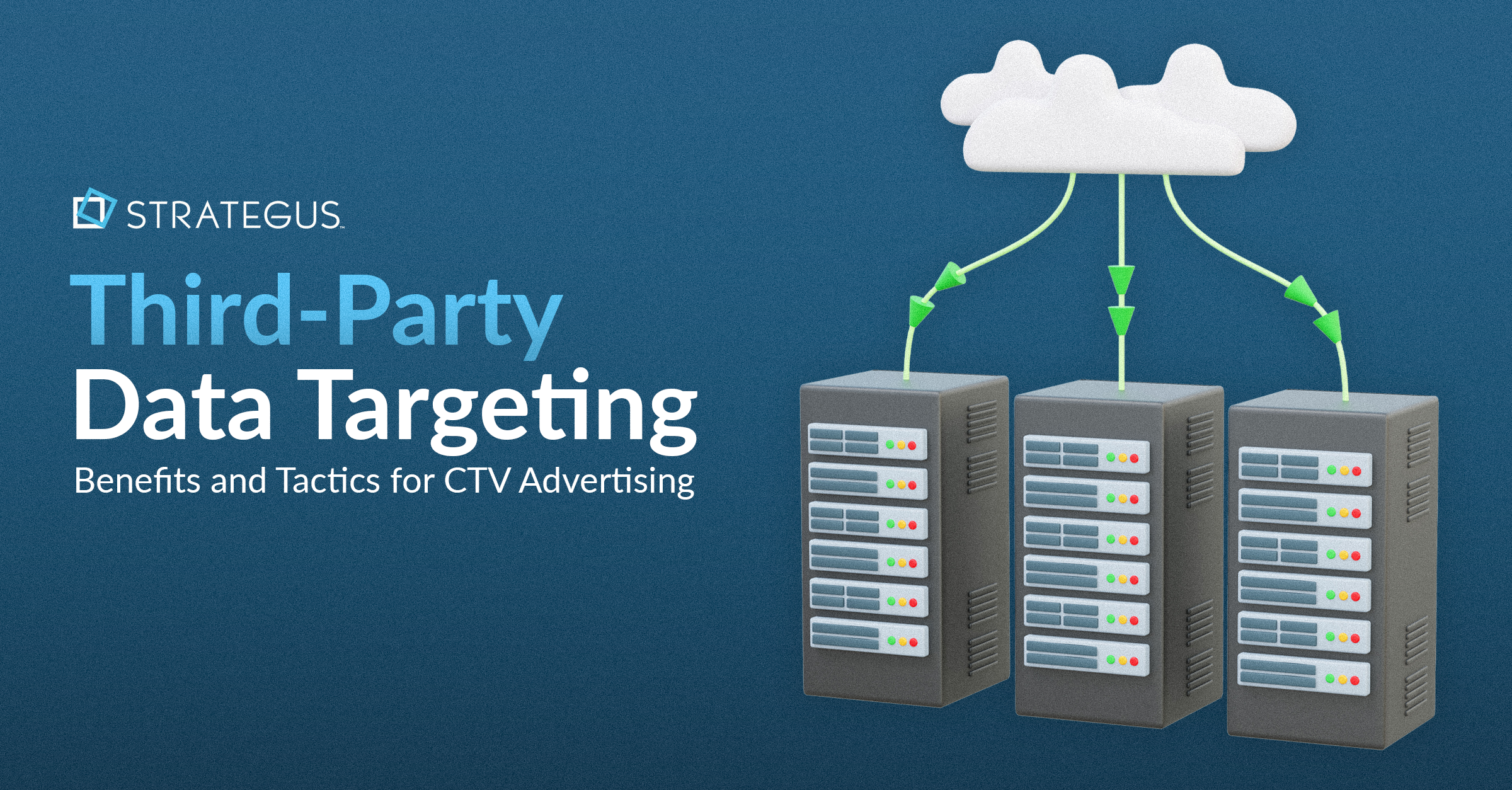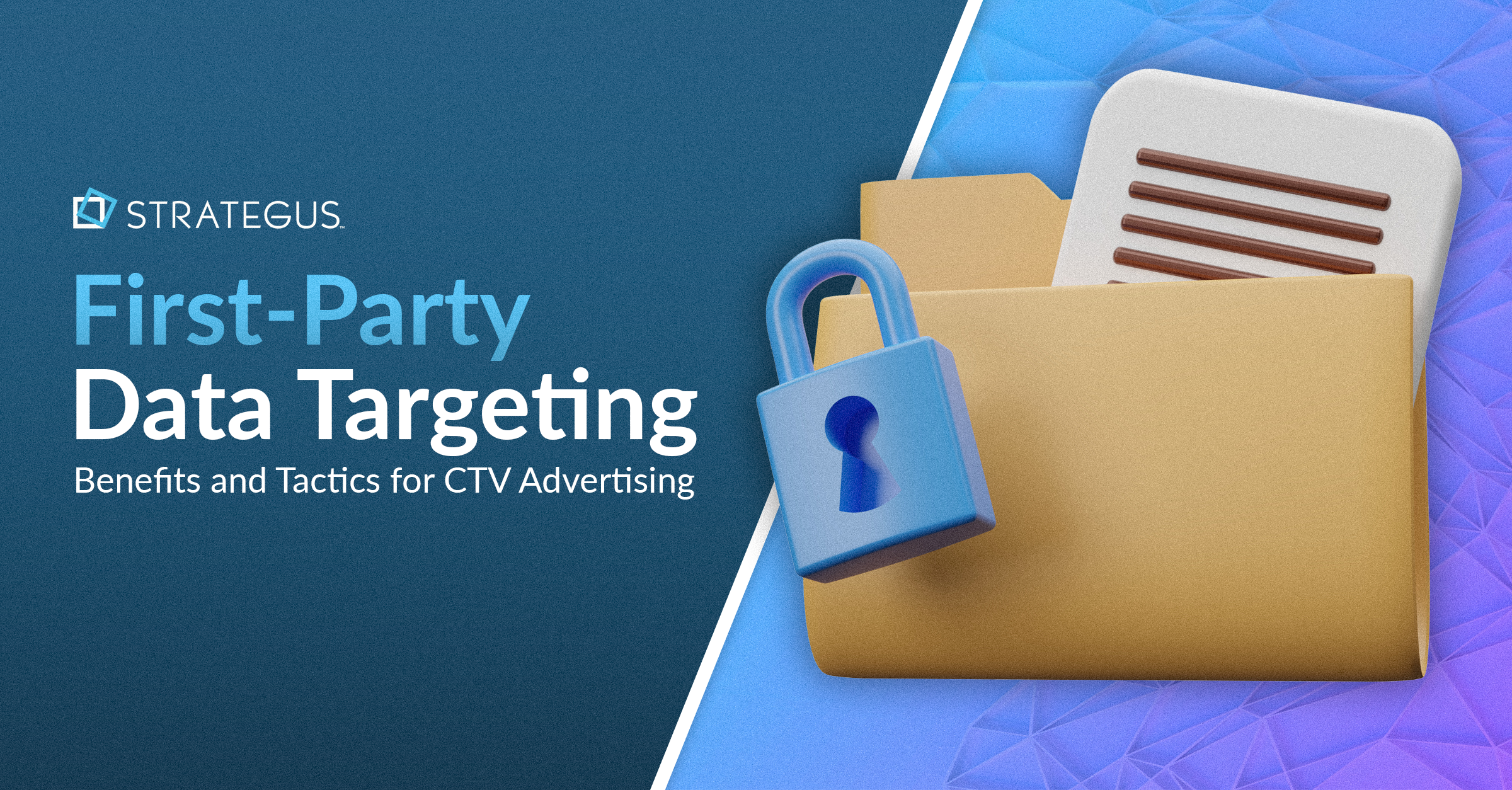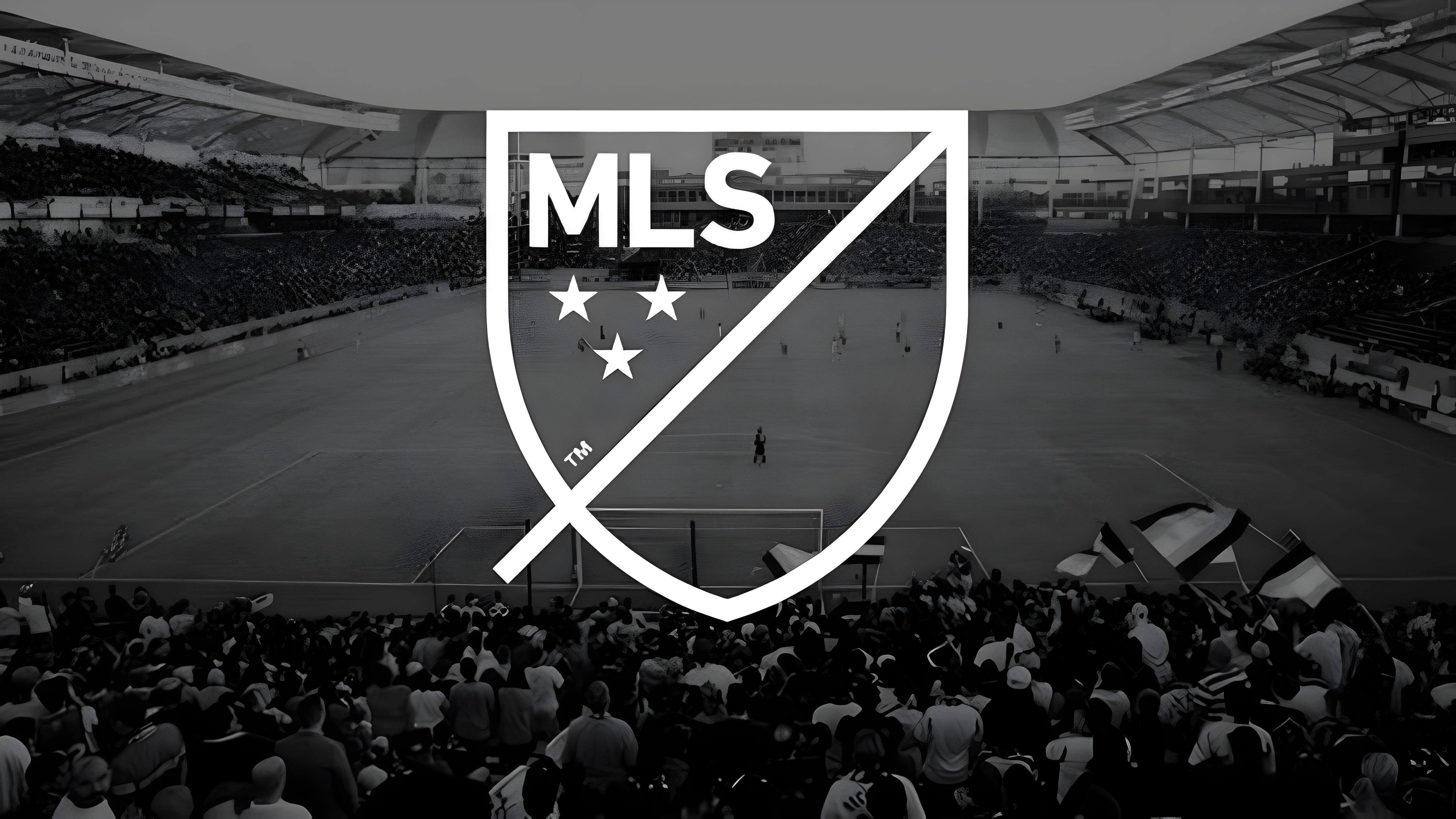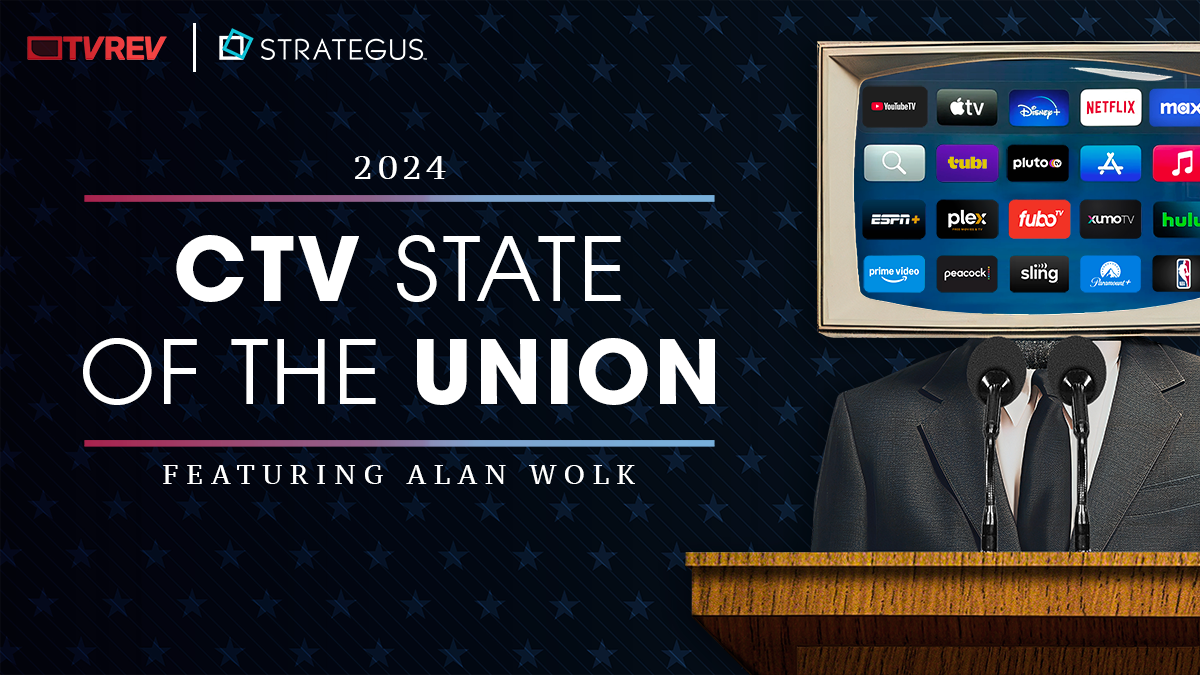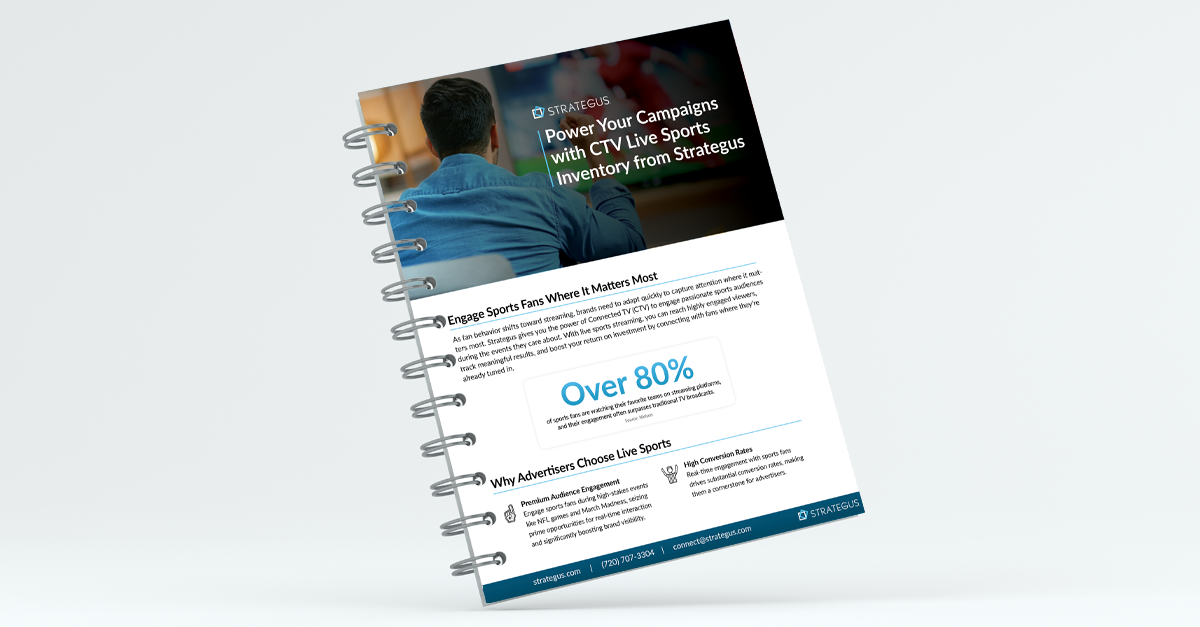- Home
- Strategus Blog
- MLB Advertising In 2020+ Programmatic CTV Is Changing Everything
MLB Advertising In 2020+ Programmatic CTV Is Changing Everything
 Andy Dixon
Andy Dixon
7 minutes read

This post is part of our larger “CTV/OTT Sports Advertising Guide,” click here to learn more.
One of the last standing barriers that distinguishes traditional broadcast and cable from streaming television is access to live major league sports. But times are changing and sports are beginning to make their presence more known on various digital platforms, from the NFL games on Twitter and Amazon, to the MLB games on Facebook, this barrier is being broken down. Additionally, with the COVID-19 pandemic pushing more people towards streaming TV, this trend has only accelerated. In fact, when it comes to advertising budgets, traditional broadcast TV upfront spending is expected to fall by $5.5 billion (27%) for the 2020-2021 season as a result of this trend.
As the 2020-2021 Major League Baseball (MLB) season resumes (although the season is shorter overall), many marketers are questioning how to approach advertising for the year. Our team believes that the clear solution to the unique circumstances is advertising via CTV (Connected TV).

Why MLB Advertising on CTV is a game-changer
When compared to advertising on traditional TV, MLB advertising on CTV is going to be much more accessible to smaller budgets, targetable, trackable, and have better viewability. Additionally, with advertising on CTV, there is no need to worry about viewers skipping ads the way they would when leveraging recording devices on traditional TV.
There are core areas where MLB advertising on CTV really distinguishes itself:
1. Advertising on MLB programs can be hyper-targeted
With CTV advertising, one of the major advantages is the capacity to hyper-target, which is very handy for advertising to only your specific type of baseball fan. Think about it, is your target audience sitting in the nose bleed section or in the boxes? Are they drinking wine or beer? Eating dogs or filet? Baseball draws people from all walks of life, unlike traditional TV, where targeting is limited to household and top-level demographics, CTV offers the capacity to hyper-target the ideal audience to guarantee the message is reaching the right audience.
Beyond age, gender, location, CTV allows for a sophisticated level of targeting that includes:
- Behavioral Targeting – the ability to target audiences based on individual interests, hobbies, online activities, lifestyle, and so forth
- Contextual Targeting – the ability to target audiences based on their viewing history. Are they sports, outdoors, and fishing or are they sports, American idol, and food?
- Time of Day Targeting – the ability to target individual audiences at different times of day, depending on when they are most active
- Technographic Targeting – the ability to target audiences based on device characteristics such as hardware, operating system, connection speed
- Geographic Targeting – the ability to target audiences based on their real-time location and where they are streaming the MLB game from
- Demographic Targeting – the ability to target audiences based on objective data points down to the smallest detail, including hometown, income, education level, and more
2. No Upfront Commitments
With the level of uncertainty around the economy and the COVID-19 pandemic, advertisers are backing out of upfront commitments in droves–and really, who could blame them? Additionally, with live sports being postponed left and right, sports-focused networks like ESPN are really hurting. Even when marketers bounce back, it is likely that ad spend will be allocated towards digital streaming over traditional TV.
With CTV advertising, another amazing benefit is the level of flexibility (when working with the right partners). This means that marketers have the ability to avoid any upfront commitments with ads. For example, the Strategus team has developed a custom curation of inventory, called Deal Ids, to get priority placement and access for MLB advertising through CTV. All this is possible while still maintaining zero upfront or long-term commitment for the marketers we work with.
3. You can make advertising on CTV during the big baseball game actionable
When it comes to traditional TV, cable boxes and DVRs render ads skippable. This is yet another area where MLB advertising on CTV holds a strong advantage. In the realm of CTV, a big perk is that ads are not skippable, which means there is a near 100% ad completion rate. Even with that advantage, like traditional broadcast TV the ads are not directly actionable (think clicks). Many click/conversion-focused marketers question, “Well, how can I prove ROI?” After all, if CTV isn’t actionable and attributable, what is the point of this huge spend on the baseball game?
In the early days of CTV, this was a tough problem to crack. This is when our team set out to create the Encore Omnichannel and Attribution Suite to address these issues. To make the CTV ad actionable, with Encore Omnichannel we are able to deliver ads deterministically to individuals who watched a CTV ad to completion with retargeting to their other digital devices. This allows us to create action out of what is typically an unactionable medium. Beyond just that, we’re proud to have the first full-function attribution product suite with 6 customizable components for online and offline attribution to track post-view conversions:
- Post View Attribution – who visited the website after they saw your ad
- Purchase Attribution – who made a purchase from the brand (including on Amazon)
- Foot Traffic Attribution – who visited the physical store location of the brand
- UPC Attribution – how many of a specific product (via universal purchase code) were purchased by those exposed to 1 or more ads
- After-Ad Influence (AAI) – Evaluate a user’s online browsing behavior before and after ad exposure
- Offline Conversion Tracking – Match offline purchase/CRM data to users exposed to your ad during the big game
4. Why advertising on MLB programs via connected TV is actually a premium option beyond traditional broadcast
Over the last couple of years, viewing habits on streaming platforms have begun to resemble linear/traditional TV with longer view times (an hour or more). This means that there will also be a higher consumption of ads on MLB programs via CTV, that combined with the targeting capabilities we mentioned earlier makes for a slam dunk channel.
Beyond that, MLB advertising on CTV is considered a premium for a couple different reasons:
- Actively Engaged Audience – this means that there is a higher likelihood of making an impression
- Higher Video Completion Rate – ads on CTV are almost guaranteed to be viewed to completion which means brand recollection is significantly higher
- Non-Skippable Advertising – with CTV, ad spots are typically shorter and more concentrated while being non-skippable, increasing the chances of your audience being focused on the ad content while it is streaming
5. MLB Advertising is actually accessible during an election year
On traditional broadcast and cable TV, election years (especially presidential election years) mean much higher rates of competition ($$) for ad spots due to political campaign spending, pushing many marketers out of the picture for crucial portions of the year. When you advertise on MLB programs through CTV, this is something that can be mitigated and even be considered a safe haven for marketers.
Because of the capacity to whittle down to a hyper-targeted audience, CTV levels the playing field and prevents political ads from hijacking the spotlight. A viewer can watch the same game on streaming, as they would on traditional broadcast, and instead of being served political campaign after political campaign, marketers can reach that same person on that same TV screen (whether it is a smart TV, or a TV with a streaming device attached).
The Bottom Line
While MLB advertising has long been an exclusive to traditional TV, there has been a steady shift towards watching live sports via digital platforms. This offers a great opportunity for marketers to capitalize on advertising during a Major League Baseball game through CTV. Not only does CTV give brands an actual chance of being shown during a highly competitive election year (as opposed to the political ads dominating traditional TV), marketers can take advantage of CTV exclusive benefits such as hyper-targeting and avoiding upfront commitments.
If there are any questions or concerns on how to approach advertising on CTV, contact our team. As leaders in the space, we’d be thrilled to chat strategy, best practices, and the right approach for your MLB ad campaigns.


Andy Dixon is a seasoned Content Writing Specialist at Strategus, renowned for his expertise in creating engaging and impactful digital content. With over a decade of experience in content creation, Andy has honed his skills in a variety of niches, ranging from technology and marketing to education.
Strategus is a managed services connected TV(CTV) advertising agency with over 60,000+ campaigns delivered. Find out how our experts can extend your team and drive the result that matter most.
Talk to an Expert
Seeking a Custom CTV Strategy That Delivers?
What to read next
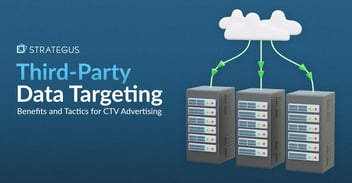
Third-Party Data Targeting for CTV: Benefits & Tactics
Third-party data. It’s a term that’s thrown around, and yet few take the time to detail its pros and cons — much less strategies for using...
7 minutes read
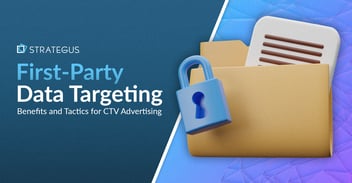
First-Party Data Targeting: Benefits and Tactics for CTV Advertising
First-party data is the information that companies collect directly from their customers rather than through intermediaries. Advertisers use this...
10 minutes read

Foot-Traffic Attribution: Tying Ad Impressions to In-Store Visits
The marketing funnel has changed. Today’s shoppers often begin researching products from the comfort of their homes and don’t set foot into a store...
8 minutes read

CTV Attribution: What It Is and How It Works
Connected TV (CTV) viewing is on the rise — and that’s good news for marketers. Not only can CTV ads be precisely targeted to individual households,...
9 minutes read



